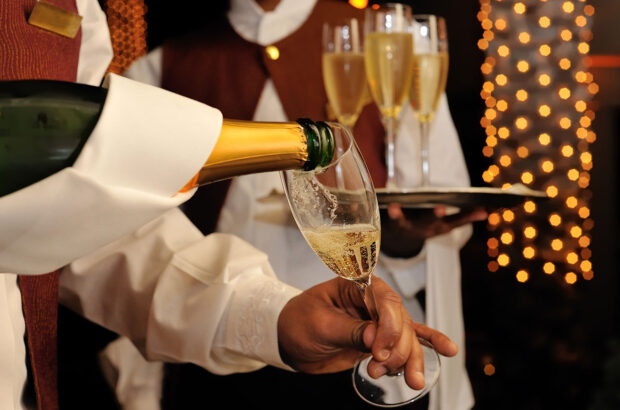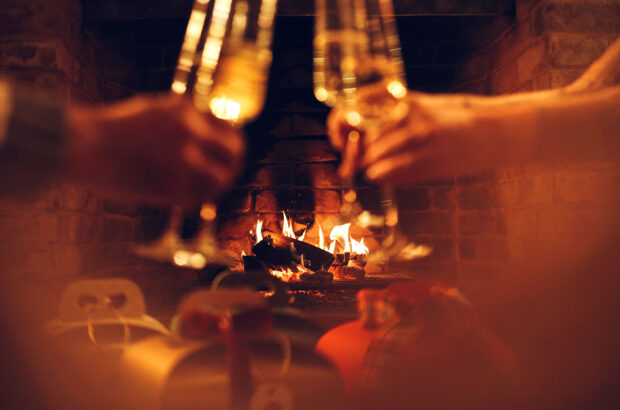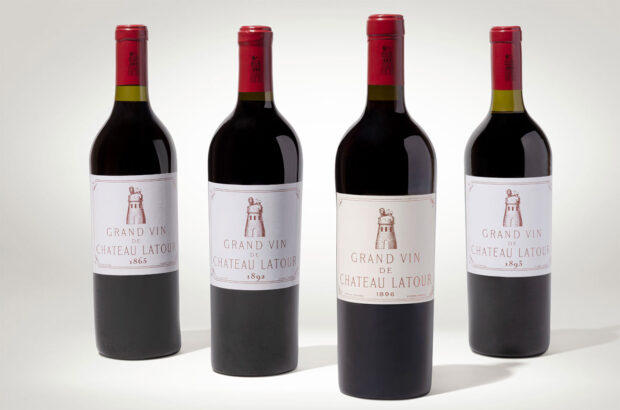Giving up the daily grind to make wine in idyllic surroundings sounds like living the dream, but what are the realities? Anne Krebiehl MW meets several 'renegades' who halted other careers to pursue winemaking...
They risked it all in order to make wine; they made sacrifices and struggled through. They are living proof that change is possible.
Each is as different as they come – the only thing they all have in common is energy, imagination and an appetite for risk and hard work.
This is a shortened version of an original article that appeared in the February 2018 issue of Decanter magazine. Premium members can read the full article here.
SEE ALSO
How to buy a vineyard – all you need to know
Jefford: Why I’m not a wine-grower
Anson: What it costs to buy a Bordeaux château
Ray Nadeson, Lethbridge Wines, Victoria, Australia

Former scientists Maree Collis and Ray Nadeson in the barrel room at Lethbridge Wines.
Ray Nadeson, 52, has a PhD in neuroscience, then tasting countless wines had piqued his interest.
‘But I wasn’t going to be a doctor one moment and then a winemaker, with no transition, so my wife and I got a degree in winemaking [while continuing to work]. Not because you need it to make wine, you don’t, but we wanted to have street cred.’
Nadeson continued in his day job for eight years while they were establishing the winery.
‘I wanted to do every aspect of what it takes, and the last thing I wanted was to employ a winemaker. But I couldn’t do both jobs. So 14 years ago I decided to become a full-time winemaker. It was a huge decision. You leave a job that is secure and well-paid to do something you have no track record in at all.’
But Nadeson is honest: ‘Lethbridge didn’t make any money for years. I had to make contract wine, consult and do other things to smooth out the cash flow. We didn’t come into the business with a whole heap of money. But even though we didn’t make a lot, we existed.’
Vicki Samaras and Jonas Newman, Hinterland Wine Company, Prince Edward County, Ontario, Canada

Jonas Newman and Vicki Samaras. Credit: Johnny C Y Lam.
Newman was a maître d’ at a Toronto restaurant and Samaras worked in the pharmaceutical industry. They were both 27 and each had dreams of owning a vineyard. Upon meeting they bought land together.
They financed this by doing up Toronto properties before selling them and trading up. They also got a state-backed agricultural loan and planted their first 3.5ha of vines in 2004.
‘We wanted to make wine that was good every year, because we have to pay our bills. We had that pressure on us, in an unproven wine region,’ Samaras emphasises.
‘We didn’t really know how to farm or to change oil on a tractor,’ confesses Newman. ‘Conceptually we understood it, but practically we had no idea what we were doing. Thankfully we were young enough to take the risk.’
Samaras agrees: ‘We really believe strongly in due diligence. It was risky, but I did my research. We really wanted to have autonomy and we had a tiny, tiny budget,’ she adds, ‘but I don’t know how we did it.’
Jamie Kutch, Kutch Wines, Sonoma, California, USA

Jamie Kutch keeps a close eye on his crop during harvest time at Kutch Wines
‘I was a Nasdaq trader for Merrill Lynch,’ said Kutch. ‘But I don’t think I would have succeeded had I not gone to Wall Street first and seen what you become with just the drive to make more money.’
‘Now I’m making a tangible product. Now I get a text message on Christmas from a customer saying “I’m enjoying this with my family”. That’s a massive reward.’
When he first went to the West Coast, he’d never worked in farming or winemaking. ‘I had no family here, no friends, got on a plane with one suitcase.’
He admits he thought ‘it would be easier than it is’, and he still has to ‘work very hard to sell 3,000 cases of wine’, but he never regretted his decision for a second.
‘My friends still working on Wall Street live in multi-million-dollar homes; we rent. They drive Ferraris, I’ve got a Honda. But the experiences I have are richer.’
Corrado Dottori, La Distesa, Cupramontana, Marche, Italy

Corrado Dottori with his wife Valeria in their Marche vineyards. Credit: Paula Prandini.
‘I was trading in stocks,’ said. Corrado Dottori. His father’s family had owned vineyards in Marche since 1935 but, like many of his generation, they sought a more sophisticated life in the city.
All of the land was leased to farmers, but they slowly started retiring and Dottori either had to find someone to look after the land or sell it.
The property he moved to was run down – he had just one hectare of vines, so he and Valeria opened a B&B, which was their only income stream for a while. But money did not bother him.
‘Even so, the first four or five years were very hard.’ He now owns 7ha of vines and also grows olives and wheat for a local pasta cooperative.
Urban Kaufmann, Weingut Kaufmann, Hattenheim, Rheingau, Germany

Former cheesemaker Urban Kaufmann with Eva Raps in Rheingau. Credit: Friedrich Spitzbart
Becoming a cheesemaker, he says, was not an unusual choice of profession in rural Switzerland. In his former life he had it made: he ran a successful cheese dairy making Appenzeller.
However, moonlighting throughout 2012 in a Swiss winery clinched it: he decided to buy a wine estate.
There were ‘a thousand reasons’ not to do it, but he could not let go of his dream. ‘Giving up something existing and well-run for the big unknown, leaving your own country…’
Finding an estate that was both affordable and a going concern was a challenge, looking for property first in Italy, then in Austria and Germany.
Getting to grips with the different aspects of a working winery was hard. But, ‘the chaos was perfect,’ Kaufmann said.
Alie Shaper, Brooklyn Oenology, Long Island, New York, US

Alie Shaper makes her Brooklyn Oenolgy wines on Long Island. Credit: David Benthal Photography.
Shaper has an engineering degree and comes from a family of engineers, and she worked in Silicon Valley in 1996, in the aerospace industry.
Looking for a change, Shaper answered an ad for tasting room staff at a Hudson Valley winery, which morphed into working in a New York City tasting room. More jobs in wine followed, along with WSET courses.
‘It was like this rebirth of making in Brooklyn. You don’t have to own land to own a winery. I just kept turning it over in my head. How would I accomplish this?’
A year later she quit her distributing job, but wanted to get wine production experience. She worked at at a custom-crush facility on Long Island, and the experience was invaluable.
However, ‘every case we sell, we have to fight for. I didn’t expect that.’
‘That transition can be really hard. It tests your resolve, your persistence and your creativity. You bear a lot of responsibility.’
See our expert advice on how to buy a vineyard







